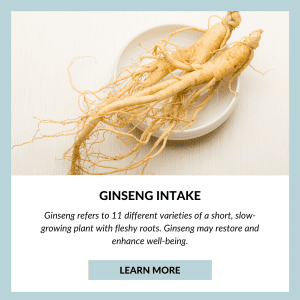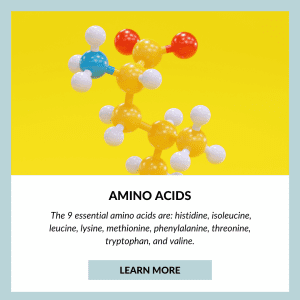Are you looking for an effective and natural way to address your Attention Deficit Hyperactivity Disorder (ADHD)? Do you want to avoid pharmaceuticals but are still determining the alternative? Look no further – today’s post is about Over the counter ADHD Medication. Here we will cover a variety of remedies to help manage symptoms associated with this condition. We will discuss different options in detail so you can determine which one(s) best suits your individual needs. You may find relief naturally without breaking the bank or relying on another prescription drug. With many options available, there has never been a better time to explore natural ways of managing ADHD and improving long-term health outcomes. Read on for more information.
ADHD, or Attention Deficit Hyperactivity Disorder, is a psychological condition that can cause difficulty concentrating and controlling impulses. Those who are diagnosed are typically impulsive and find it difficult to focus on the tasks at hand. It can affect adults and children but is one of the most common neurodevelopmental disorders affecting children.
Symptoms of ADHD include restlessness, trouble focusing, acting without thinking, and feelings of boredom. Although there is no cure for ADHD, the disorder can be managed with medication and behavioral therapies like cognitive therapy and parent training programs. Taking proper steps toward managing ADHD can help individuals achieve tremendous success in school, work, and relationships with others. With the right support system and care plan, those with ADHD can thrive despite their condition.
ADHD medications are prescribed to treat Attention-Deficit/Hyperactivity Disorder (ADHD) in children and adults. These medications belong to a class of drugs known as stimulants, designed to help improve focus, hyperactivity, and impulsivity.
Commonly prescribed ADHD medications include;
- Adderall (amphetamine and dextroamphetamine)
- Concerta and Ritalin (Methylphenidate)
- Focalin (Dexmethylphenidate)
- Vyvanse (Lisdexamfetamine) and
- Strattera (Atomoxetine).
Although these medications can be effective in managing ADHD symptoms, it’s essential to talk to a physician before starting any medication, as they can pose potential side effects. Additionally, your doctor may suggest alternative options such as lifestyle changes or psychotherapy, that may be more beneficial for controlling symptoms.
Over The Counter ADHD Medication
When treating ADHD, prescription medications are not the only option. While many natural ADHD supplements and remedies claim to be helpful in easing symptoms of Attention Deficit Hyperactivity Disorder (ADHD), they don’t always have much scientific backing. To make sure you’re making informed decisions while finding your ideal treatment plan, here is an overview of non-prescription options with substantial evidence demonstrating their effectiveness for those seeking alternatives to traditional medication.
Increase Caffeine Intake
Caffeine has been a popular form of self-treatment for those with ADHD–and research backs up its efficacy. It may bolster alertness, attention span, working memory, motivation levels, and reaction time when taken at 200-400mg – the equivalent of two to four cups of coffee.
Drinking coffee or tea may be a healthier way to get the benefits of reduced ADHD symptoms, as the antioxidants and anti-inflammatory compounds found in these drinks could also play an important role. Be careful though – caffeine is still a stimulant and can have adverse effects if overconsumed; speak with your doctor about how much you should drink per day for optimal health.
- Animal and human studies have found that caffeine enhances cognitive abilities, sharpening alertness, attention, working memory, moods & motivation while quickening reaction time.
- Caffeine is widely known to help those with ADHD, but coffee may be more than just a quick fix. It’s packed not only with energizing caffeine, but also awesome antioxidants and anti-inflammatory properties which could contribute towards easing symptoms.

Use Supplements containing the below ingredients;
Use Antioxidants
New research has uncovered a possible link between oxidative damage and Attention Deficit Hyperactivity Disorder (ADHD). To reduce the symptoms of ADHD, experts suggest increasing your antioxidant intake with supplements such as Ginseng and maritime pine bark extract. The latter is said to be especially beneficial due to its abundant source of Pycnogenol – an effective compound for improving focus and coordination with reduced hyperactive behavior in children afflicted by this condition. Moreover, you can gain more antioxidative agents from consuming grapes, berries, or even red wine.
- After an in-depth study of children with ADHD, remarkable results were seen – participants experienced a marked improvement in their ability to socialize effectively and cope better with hyperactivity and impulsivity after taking American Ginseng and Ginkgo biloba twice daily for four weeks.
- Another study offers promising evidence that supplementing a daily routine with omega-3 and Korean red Ginseng could be an effective, natural way to beneficially impact the symptoms of ADHD. Through this holistic approach, children may experience improved attention span, memory retention, and heightened executive functioning skills.
- Another newly conducted study has revealed an exciting result: administering Pycnogenol, a natural extract derived from the bark of pine trees, to children with ADHD produced remarkable improvements in hyperactivity levels, attentiveness, and visual-motor coordination. Furthermore, these benefits proved to endure after only one month of treatment – although symptoms started to reappear shortly afterward when use was stopped.

Citicoline
Citicoline is an incredibly naturally-occurring chemical found in the human brain. While it’s only available as a dietary supplement in America, its origin lies in Japan where doctors prescribed it to their patients. This ingredient is mainly used in over the counter ADHD medication and other brain health supplements.
- For example, A study found that participants consuming a combination of citicoline and caffeine experienced elevated cognitive functioning in mental alertness, attention-spanning tasks, and working memory while tackling complicated problems.
- Other studies have also indicated how its unique bioactivities may benefit attention and focus – perfect for those who tackle ADHD issues or boost overall cognitive function.
- Recent research has also confirmed that the supplement Citicoline can help sharpen focus and maximize attentional performance.
Despite promising findings in preclinical models, recent clinical trials have failed to demonstrate any protective effects of citicoline for people suffering from ischaemic stroke or traumatic brain injury. Therefore more in-depth human research is needed to prove its efficacy.
Phosphatidylserine Can Also Be Used As an Over The Counter ADHD Medication
PS is a powerful tool to cultivate overall brain health – with the bonus of being one of the only nootropics scientifically shown to help people living with ADHD. Its ability lies in its impact on neurotransmitters like acetylcholine and dopamine as well as glucose metabolism, which can restore energy lost due to fatigue-related symptoms associated with ADHD. Additionally, Phosphatidylserine is essential in forming new brain cell membranes. It provides fluidity for improved focus and cognitive function related to catecholamines, making it an indispensable ally on your journey towards healthier mental well-being.
- A breakthrough study sparked the notion that PS might provide a solution for those struggling with lack of attention, hyperactivity, and poor memory retention. Researchers suggested this new remedy may work by boosting certain brain chemicals associated with improved focus – giving hope to many.
- Early research has also hinted at the possibility of Phosphatidylserine mitigating attention-deficit issues in children with ADHD.
- Phosphatidylserine has demonstrated potential as a viable solution for improving the mental performance of children struggling with ADHD. Recent studies have uncovered evidence that PS supplementation could be an effective and natural way to address symptoms related to this disorder, such as deteriorating short-term auditory memory.
- However, further studies must be conducted to confirm these findings and improve the quality of evidence for this connection.
Increase Iron & Zinc Intake
Research is exploring the role of nutrient deficiencies in contributing to ADHD, with mixed findings. However, strong evidence suggests that lower than usual levels of iron and zinc are a common factor among those living with ADHD – and when these minerals return to their proper amount within the body, symptoms such as hyperactivity and lack of focus tend to be alleviated.
Despite the optimism around iron and zinc supplements as a treatment, their observed effects have been inconclusive due to difficulty in consistently delivering dosages. This is primarily attributed to our bodies’ inability to absorb these nutrients efficiently.
To enhance the impact of your other treatments, try adding some nutritional powerhouses to your diet! Red meat, poultry, and dark chocolate are splendid sources of iron, while hemp seeds provide generous amounts of zinc. Together they can give a significant boost to one’s health journey.
Amino Acid
Amino acids are more than just the building blocks of protein: they also act as precursors to neurotransmitters. Amino acids like L theanine, Tyrosine, and phenylalanine —play a crucial role in the production of neurotransmitters—the chemical messengers responsible for regulating our emotions and behavior. Although some evidence suggests amino acid supplements could help those with ADHD, research has not yet provided explicit confirmation of this. Ultimately, whether taking additional nutritional support for ADHD will be beneficial remains a mystery.

Bottom Line
When it comes to ADHD, it is important to remember that taking action is the key. It cannot be prevented or cured, but with appropriate healthcare and a comprehensive treatment plan, individuals can have help managing their symptoms. When seeking treatment for this condition, do not hesitate to ask your doctor about prescription drugs like Ritalin, Focalin, and Adderall, as well as natural alternatives that may also work for you.
We recommend Brain Pill® as the best over the counter ADHD medication because they proudly include Phosphatidylserine (PS), Citicoline, Tyrosine, and L theanine and specific essential vitamins like vitamin B6, B12, and b5 to help symptoms of ADHD and support a more healthy brain function. These unique over the counter ADHD medications help maintain critical cognitive function throughout all stages of life, from enhancing focus and attention for adolescents with problems to improving memories and cerebral abilities among seniors.
Lastly, consider reaching out to support groups, as they can often provide great advice and emotional comfort for parents of children with ADHD. With commitment and dedication from you and your medical team, living with ADHD doesn’t have to be impossible.
Disclaimer: When it comes to dietary supplements, always trust the expertise of a qualified doctor or health care provider. Don’t rely solely on this article’s info – use it as an educational resource and supplement your knowledge with advice from experts in the field.
